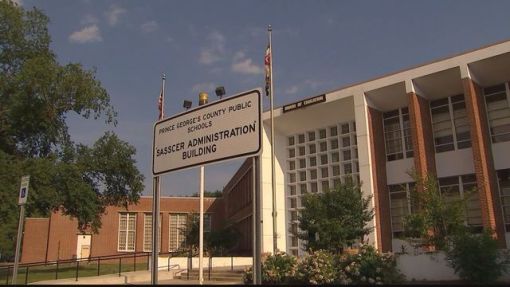In the Wyoming Valley West School District in Pennsylvania, the “lunch debt” fiasco went viral on social media, after the school district sent parents letters threatening to send their children to foster care if they didn’t pay their school lunch debt.
An equally tragic blow to students experiencing poverty came from the Trump administration last month – a proposal to overhaul SNAP (the former food stamp program) in a way that would affect families’ eligibility for the program and leave more than 500,000 children without automatic eligibility for free school meals.
U.S. policy too often punishes and criminalizes people struggling with poverty, even inside school buildings where children are supposed to be nurtured and kept safe. However, parents and students are fighting back against unfair school conditions and policies.
In Maryland, students and parents from Prince George’s County filed a lawsuit to challenge mandatory fees for summer school classes required for students to advance in school and to graduate.
Prince George’s County (PGCBS) has a long and unfortunate history of denying educational opportunities, particularly to students who are Black or who are from families with low-income. Now, by denying indigent students the opportunity to attend summer school classes if they cannot afford them, PGCBS is violating the explicit terms of the Maryland Constitution, which establishes a mandate for free public schools and has been interpreted as requiring schools to “be open to all without expense.”
Laurie Tucker is one of the parents whose son is challenging summer school fees. Ms. Tucker said, “My son, who is a high school senior, was told that he was a couple credits short of graduating.” Ms. Tucker’s son had to go to summer school because his new school did not offer the classes he needed to graduate. “He would have had to go to school for another year for two credits when he was so close to the finish line. He would have been very discouraged. It could’ve caused him to drop out.”
What is most detrimental about the school summer fees is that it closes off opportunities for children solely based on lack of funds, perpetuating systematic inequality. School districts in the State of Maryland shouldn’t deny educational opportunities by punishing families for not being able to afford summer school classes for their children.
Ms. Tucker said: “All kids no matter the income bracket they fall under should have an equal right to meet their educational needs. It should not be based on price or income. Summer school fees should not exist for public schools at all.”
The Prince George’s students who filed this challenge cannot afford to pay the per-credit and registration fees PGCBS imposes, so they are at risk of being forced to repeat the entire grade. For at least two students, this might have prevented them from graduating high school. Meanwhile, other students in need of summer school credits, but who can afford the fees, are able to enroll in summer school and avoid having to repeat a grade and graduate.
Thankfully, after bringing this legal challenge, all of the plaintiff families’ children had access to summer school for free this summer “My son will now be graduating in August,” said Ms. Tucker. “I just want to see him successful and happy.”
Students deserve fair and equal opportunities in public school, especially in Maryland where the state’s Constitution establishes public schools that are supposed to be truly free. Denying opportunities to students in an area with mostly Black and Brown children from families with low incomes not only demonstrates inherent racism within the systems of the state, but devalues the lives and education of Black and Brown children who deserve to be just as cared for and valued as children who are white and whose families have higher income.
Maryland must buck the national trend and do better. It’s time to extend free summer school for all students who need it.


